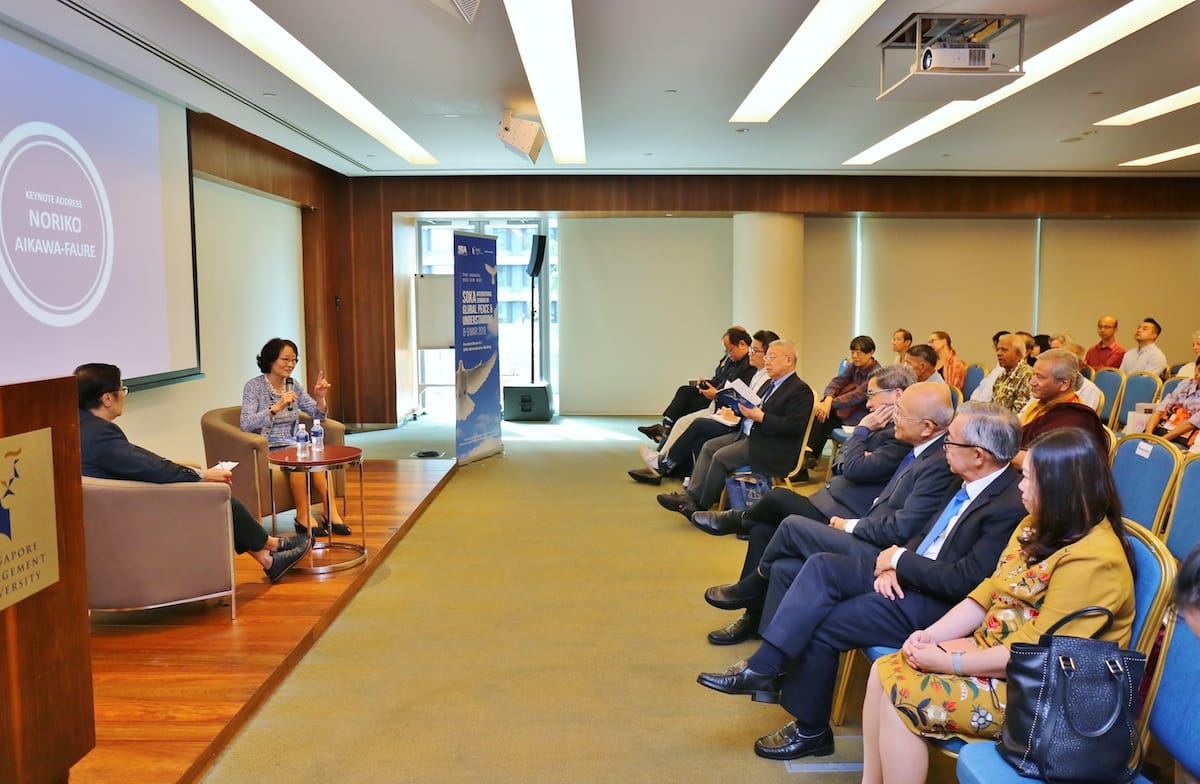
Into its fourth year, the Annual Wee Kim Wee-Soka International Seminar on Global Peace and Understanding was held over two days from 8-9 March, at the Singapore Management University (SMU).
The Wee Kim Wee Centre and the Singapore Soka Association (SSA) have worked together since the inception of its partnership in November 2015. Since then, they have held close to 10 lectures and seminars with an outreach to over 2,000 scholars, leaders, educators, innovators and individuals to discuss various topics that promote peace and active citizenry.
Prior to the commencement of the seminar on 8 March, SSA and SMU held a gift signing ceremony to mark the renewed partnership for an additional five years from year 2020 to 2024.In his welcome remarks, Professor Lim Kian Guan, SMU Vice-Provost for Undergraduate matters quoted the opening lines of the novel ‘The New Human Revolution’ by Soka Gakkai International President Daisaku Ikeda:
‘Nothing is more precious than peace, nothing brings more happiness. Peace is the most basic starting point for the advancement of humankind.” These opening lines shares with us the key insights into the principles by which SSA pursues and develops initiatives in the areas of peace, culture and education.’
Professor Lim also highlighted the significance of the continued partnership as “it will allow the Wee Kim Wee Centre to continue to champion activities that enhance the understanding of peace, increase interfaith dialogues and augment research and collaboration in related topics.”
SMU also presented a token of appreciation to SSA as a gesture of gratitude and appreciation for the continued partnership.
The 2-day international peace seminar attracted close to 250 attendees. It covered five themes namely Cultural Heritage, Arts and Culture, Happiness and Culture, Literary Culture in Singapore and Multiculturalism. 22 speakers and 5 moderators from various nationalities and backgrounds explored cultural heritage and looked at how cultural diversity and inclusion can help foster a sense of peace and belonging.
(Refer to SSA Times issue 603 for the full report)
